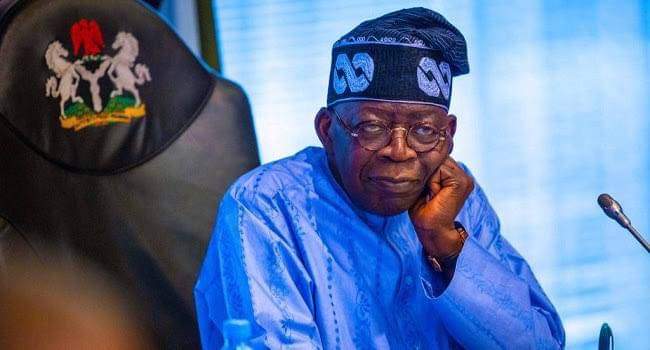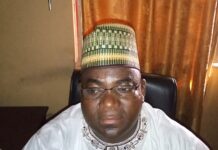Tinubu: One Year of What? By Kabir Akintayo
By Kabir Akintayo
On May 29, 2023, Bola Ahmed Tinubu was inaugurated as President of the Federal Republic of Nigeria, succeeding Muhammadu Buhari. Tinubu’s presidency promised a ‘Renewed Hope’ for the country and her people at large.
As his administration marks its first year anniversary, POLITICS DIGEST evaluates Tinubu’s policies, progress, challenges, and overall impact of his leadership on Nigeria’s political, economic and social landscape.
Political Landscape and Governance
In a Nigerian political setting, every administration strives hard to secure a second term, aiming for eight years in power. The first two years in office are primarily focused on achieving accomplishments, while the remaining years are often dominated by political activities to advertise these achievements for reelection. In this context, President Tinubu has yet to record any notable achievements, with only a few showing promise of success.
Also, bear in mind that, sooner than later, the political gimmicks of 2027 will come into play, which will occupy the space of governance. Therefore, President Tinubu will have only one year to prove the worth of his reelection thus, reeling out achievements for political campaigns.
Although, when it comes to politics, the former Lagos state governor is a master strategist. His first year saw efforts to consolidate political stability. He made significant cabinet appointments aimed at inclusivity and competence, drawing from a diverse pool of technocrats and seasoned politicians.
His appointment extended beyond political parties. And, as one of the founding fathers and leader of the All Progressives Congress (APC), appointing a Peoples Democratic Party (PDP) former governor, Nyesom Wike as Minister of the Federal Capital Territory (FCT), shows a level of tolerance. Equally for governors, he associated and gave the same regard to all without segregation. In brief, it is believed that the majority of the state governors are on the same page with Mr. President, as their continuous visitations to him during festive periods cannot be overstated.
Another political gain for Tinubu is the upward review of salaries, allowances, and fringe benefits for judicial officers. The bill which has passed the second reading at the House of Representatives will pay the Chief Justice of Nigeria N64.6m annual basic salary and allowance, while other justices of the Supreme Court are to earn N60m annually. This move, according to the President, would promote the welfare capacity and independence of the Nigerian judiciary system. This will also reduce corruption and manipulations of justice in the system.
Economic Reforms and Challenges
Tinubu’s first year was defined by bold reforms aimed at revitalizing Nigeria’s ailing economy. His early removal of the fuel subsidy changed the dynamic of Nigeria’s economic system.
So many promises were made to put in place measures to harbour the effects of subsidy removal, among these was the introduction of CNG-powered buses by the Federal Government (FG), after which N100bn was earmarked to purchase 5500 CNG vehicles including (buses and tricycles), 100 electric buses and more than 20,000 CNG conversion kits, with plans to develop CNG refilling stations and electric charging stations nationwide.
Also, Tinubu launched initiatives to support small and medium-scale enterprises (SMEs), which included financial incentives, tax reliefs, and access to credit facilities. According to the Minister of Trade and Investment, Doris Uzoka-Anite, more than 150,000 Nigerians received N50,000 from the Conditional Grant Scheme already. She said that the scheme is targeted at one million Nigerians with a promise to release the names of all beneficiaries. Another presidential palliative program introduced by Tinubu’s administration is a loan disbursement of one million Naira to business owners, while manufacturers can access up to N1 billion. It is a program that will indeed revolutionize financial support for economic empowerment in the country.
Read Also:
Additionally, Tinubu’s government worked on improving infrastructure. Major road and rail projects were initiated or accelerated, aimed at enhancing connectivity and boosting trade. The Lagos-Ibadan Expressway and the Port Harcourt-Maiduguri railway were among the key projects that received substantial attention and funding.
In the Federal Capital Territory (FCT) the Minister is working tirelessly to deliver on the renewed hope of Mr. President. Every part of the capital city is witnessing a transformation, from road construction to Abuja metro rail commissioning. Nyesom Wike recently said that President Tinubu will commission the FCT project for 11 days starting from May 27 to June 6.
Social Policies and Human Development
Tinubu’s administration placed significant emphasis on education and healthcare as part of its human development agenda. In education, Tinubu, on April 3, 2024, signed into law the Students Loans (Access to Higher Education) (Repeal and Re-enactment) Bill, 2024. The Act is of historic proportions as it seeks to guarantee sustainable higher education and functional skill development for all Nigerian students and youths.
Healthcare reforms were another critical area of focus. The administration launched the Universal Health Coverage initiative aimed at making healthcare more accessible and affordable. Steps were taken to improve the quality of healthcare services through increased funding, training of medical personnel, and upgrading healthcare facilities. The rollout of community health insurance schemes in various states also marked a significant step towards achieving wider health coverage. However, access to quality healthcare remained uneven across the country, with rural areas particularly underserved.
Security and Anti-Corruption Efforts
The fight against insurgency in the Northeast has recorded a huge success under President Tinubu. The most pressing issue which is the Banditry and kidnapping in the Northwest is been tackled by the military, whose operation made most of the Bandit leaders seeking negotiation with the government. The role of civilian JTF in the fight against the enemy of the state has yielded more results with a recent apprehension of Bandits informants and the elimination of others.
In the fight against corruption, Tinubu made high-profile appointments in key anti-corruption agencies and reiterated his commitment to transparency and accountability. The prosecution of several high-profile cases and personalities like the former Central Bank of Nigeria, Godwin Emefiele, former Minister of Aviation Hadi Sirika, and the removal of Humanitarian Minister, Betta Edu from office over allegations of embezzlement amongst others are testament to Tinubu’s transparency in the fight against corruption.
The Proactiveness of the Economic and Financial Crime Commission (EFCC) lately is quite commendable. The commission has recovered over N120 billion, and secured 1,600 convictions within just six months. It seems the presidency has given free will to the EFCC without hindrances.
Foreign Policy and International Relations
On the international front, Tinubu aimed to reposition Nigeria as a leader in Africa and a key player on the global stage. His administration worked to strengthen ties with neighbouring countries and sought to play a more active role in regional organizations such as the Economic Community of West African States (ECOWAS) and the African Union (AU). Tinubu’s foreign policy was characterized by economic diplomacy, seeking foreign investments and partnerships to boost Nigeria’s economic development.
Efforts to attract foreign direct investment were buoyed by engagements with major economic powers and multinational corporations. Tinubu’s administration hosted several international business summits and signed trade agreements aimed at fostering economic collaboration.
Last line.
President Bola Ahmed Tinubu’s first year in office was marked by ambitious reforms and a clear vision for Nigeria’s future. His administration made notable strides in governance, economic diversification, and social policy. However, significant challenges remained, particularly in addressing security issues, corruption, and the impact of economic reforms on the average Nigerian.
The success of his presidency will ultimately be judged by his ability to deliver tangible improvements in the lives of Nigerians and steer the nation towards a path of sustainable development and prosperity.
















